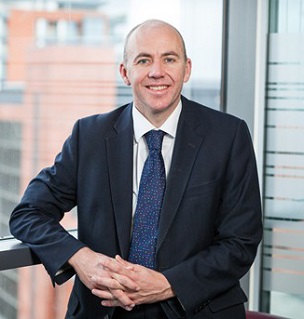
This week, my first born child started university. When I was studying, there was a room in the Union called “The SQ”. It was like Pandora’s Box or the 9th circle of hell in there – you didn’t enter and expect to come out within a week.
I still don’t know what “SQ” meant at university, but in a legal context it stands for an easy to understand concept: Satisfactory Quality – the expectation that anything a customer buys should not be faulty or damaged when they receive it.
Yet in practice, it’s a bit more complicated: the Financial Ombudsman Service mentions SQ first on its list of common complaints it receives about car finance.
The law on satisfactory quality is straightforward enough: section 75 of the Consumer Rights Act 2015 gives the customer the right to ask for a full refund in the first 30 days after buying any product that proves to be faulty, including new and used cars. The Act implies a term into all contracts that a car will be of satisfactory quality, and states that a vehicle will meet that standard if a reasonable person would consider it satisfactory, taking into account:
- any description of the goods
- the price
- all other relevant circumstances, which can take into account things like the age and mileage at the time of supply, and the car’s history.
In appropriate cases, whether a car is considered to be of satisfactory quality might also be affected by its:
- fitness for all the purposes for which goods of that kind are usually supplied
- appearance and finish
- freedom from minor defects
- safety
- durability
Often, all this is summed up as being “the characteristics of the car”, and while much depends on the specific facts of each case, some key principles do run through all matters. For example, a reasonable person would normally assume that the quality would be higher in a brand new car than in a cheaper, older used car, which few would expect to be in perfect condition.
So why do some parts of the motor industry still have issues around satisfactory quality claims?
Sometimes the issue arises in the context of the three-way relationship between motor finance company, dealer and customer. Innocently or otherwise, it can happen that a dealer sells a customer a case which later turns out to have faults. The dealer isn’t always the agent of the finance company, but they can be in certain circumstances and it’s very important to have open lines of communication between dealer and finance company here, as we covered quite recently in this article: http://ascent.passle.net/post/102fkpo/gordon-v-volkswagen-financial-services-uk-ltd-t-a-audi-finance
Where a car is accepted or found not to have been of satisfactory quality, the customer can of course hand it back and get a full refund. No-one disputes the need for customers to get the right outcome, but is every customer always completely straight with the dealer and the finance company? “Buyers’ remorse” is common in the car industry and poses an interesting challenge for finance companies when consumers hand cars back claiming there’s a minor quality issue, when in reality – in some cases – the customer may simply regret the purchase, or have realised after the event that they cannot really afford it.
Once a customer signs a vehicle order on a dealer’s premises, there is no cooling off period – the car is theirs, and they don’t have the legal right to simply change their mind. But buying a car is a huge financial commitment, so it’s no surprise that some customers can get cold feet – or just decide they don’t like the car after all – so try to claim the vehicle is faulty so they can hand it back.
We and our clients strive to ensure that we always arrive at a fair outcome in each individual satisfactory quality dispute, and this includes taking a robust approach on cases where the car is found to be of a satisfactory quality. After all, the principle of fairness applies to all parties in a transaction.
Here at Ascent we offer a fixed price product for resolving satisfactory quality disputes. For more information, give me a ring any time on 07795 504476.
Mark Higgins, Chairman
